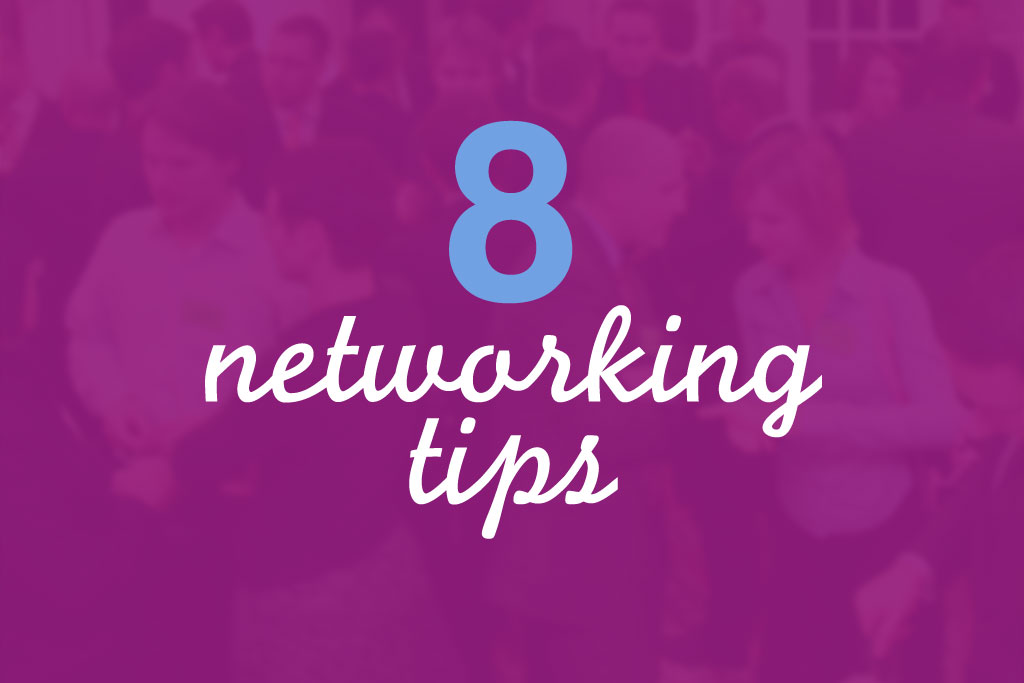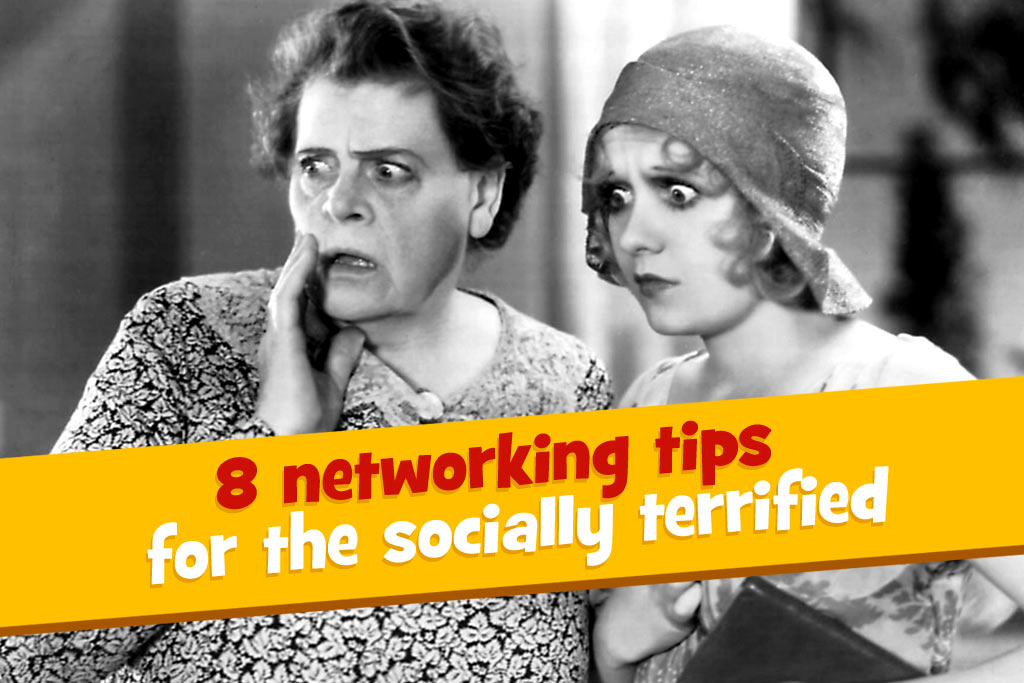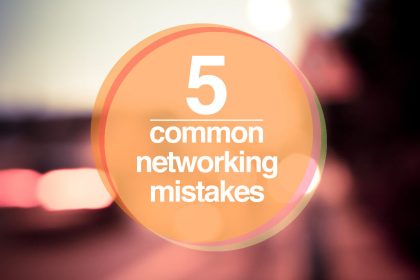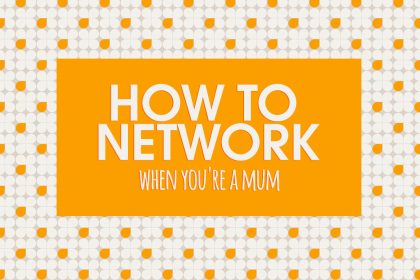How to find the right networking group – seven big questions you need to ask
Is networking right for you? And how do you find the right networking group? Here are seven big questions you need to ask yourself before signing up.
If there’s one word that’s guaranteed to trigger an inward groan in many an entrepreneur, it’s “networking.” Love it or hate it, good networking can transform a business, introducing you to useful contacts, clients and boosting word of mouth recommendations.
But what’s the right networking group for YOUR business? How do you locate and identify it in the first place? And how do you decide after the fact if it actually was a good choice?
Over the last five years of running her own business (and before that working with other firms in the tax/accounting arena) tax consultant Rachel Sestini has done a great deal of networking – from large Champagne-fuelled city events with 400 or so guests in attendance, to a private group of six business owners, arranged by a friend in a local pub.
But what has actually worked? And what has she learned along the way?
Seven questions to ask to find the right networking group
Naturally, different business owners and different businesses will suit different types of networking event, so what works for me won’t necessarily be a success for others. Here are seven questions I recommend asking yourself before you join a networking group.
1) Can you try before you buy?
Most formal networking groups will allow non-members to visit twice to get a feel for the group, the format, the attendees etc before committing to membership. Some networks also allow non-members to substitute for members.
2) Can you bring a friend/colleague/client?
If you aren’t sure whether a group will suit, visit with someone else and trade notes on your respective experiences. You might have missed the one really good contact in the room or the gem of information which your friend might pick up on.
3) What are the logistics?
Like starting a new gym membership, if you can find something that’s easy to get to and fits in with your preferred work and social schedule you are much more likely to keep it up. I realised very quickly that a 6.45am breakfast networking nearly an hour away from the office was never going to be a weekly event!
4) How much time does it take up?
Casual mingling followed by lunch followed by introductions followed by a couple of educational talks might sound delightful in a slow week and ticks quite a few boxes in one go, but after a few months are you going to resent taking four hours out of your day (or evening) to listen to the same people tell you again what they do?
5) Are you comfortable with the format?
Some people hate walking into a room full of strangers and making casual small-talk whereas others find a formal agenda and 1-minute elevator pitch stifling. Others of us have far too short an attention span to listen to 50 people talking about themselves even if it is only for a minute.
Sometimes it’s good to step outside of our comfort zone, but if you are going to do this every week/month/quarter you need to be able to relax and enjoy it.
6) Why are you going and why are the other people there?
Of course it’s really important to work out exactly why you want to network and what you can reasonably expect to achieve from it, but it’s also good to understand the motivation of the other attendees to ensure it’s complementary to your goals.
If you are simply there for a chat and to see a few new faces because working at home on your own all day makes you despondent and the rest of the room are there to hard sell you insurance or hampers for example, you may find the experience somewhat unsatisfying.
7) How much does it cost?
Don’t forget to find out about joining fees, annual fees and the cost per event and work out what the total annual cost is likely to be. Also, if you have a team, does the joining fee enable other team members to attend events when you can’t? Also, remember to factor in travel costs.
What are you looking for from networking?
As mentioned above, the key to finding the right networking is working out why you are doing it. Yes, it seems self-evident that pretty much anyone thinking about networking for their business will be looking to raise awareness and/or find new clients but you need to get a lot more specific than that. For example:
- Do you really just want to get out and meet people?
- Do you want to practice talking about your business and yourself in preparation for more formal pitches?
- Do you want to sell and do business at the event itself or are you looking for long-term connections?
- Who are you looking to meet – prospective clients, suppliers, referrers or fellow business owners for support and to share experience?
- If you are looking to meet clients, what types of client do you think you will meet at or be connected with through, this particular networking event?
- Are you looking for additional customers or to replace your existing customers with “better” ones? What does the ideal customer look like who might like to meet through networking?
- Do you want to meet people in your own industry? Or stay away from the competition?
I would suggest writing down what you believe you are looking for before you embark on finding a networking group, then when you start Googling/trawling the facebook business groups/asking for recommendations you can be more specific about what you are looking for.
What networking opportunities are out there?
There are a number of different types of networking, one way of breaking them down in to categories to help you find the right one for you might be:
- National/international networks – for example 4N, BNI, and NRG to name but a handful: these all advertise online and have helpful websites showing where and when their events are held.
- Industry-specific events – most professional bodies hold training and networking events and also the bigger players in a specific field will often host events. For those in large industries such as property there are also sector-specific national networks (e.g. PIN).
- Local business groups – these range from Chamber of Commerce and government-sponsored business groups (locally to me we have Business West) to private events run by businesses such as banks and law firms aimed at getting local businesses together. Some of these will be invitation-only and others open and advertised.
- Private members’ groups – membership organisations often run their own networking, for example the Institute of Directors and Federation of Small Businesses each run events up and down the country.
- Women’s networking – nationally and regionally there are quite a number of women’s only networking groups such as Women in Business Network (WIBN) and The Athena Network.
How do you know if networking is working for you?
As well as thinking about why you want to go networking, you also need to get quite specific on what you want to achieve so you have a set of benchmarks to measure the outcomes against.
Personally, I don’t find it helpful to judge the success of networking on an event-by-event basis as making new connections often has unexpectedly productive outcomes over the longer term, so I don’t expect all the benefit to be apparent at or immediately after the event itself.
That said, here are a few ideas what you might measure in the short and longer term:
- Have I passed out five business cards to new contacts at each event?
- Have I had a good conversation about my business with at least two people at each event?
- Have I arranged at least one follow up action from each event? (This might be a meeting, a coffee, sending more information to them, agreeing to go to another event together)
- Have I met anyone in the last three months I would really like to do business with?
- How comfortable do I feel (on a scale of one to ten) walking into the room/pitching my business/starting a conversation with someone new and has this improved over the last three months?
Naturally, the goals will vary business to business – the above are all personal to me. For some businesses it will be more appropriate to sell the service or product on the spot so another measure might be the amount of goods sold or business written at or as a direct consequence of the events themselves.
Whatever goals you fix on for your networking, of course they need to be in line with your overall business goals. In any case I would recommend reviewing and updating these quarterly as you spend more time with the group in question.
Read more networking tips
Love to find out more about making networking work for you? You can read more advice in these articles:
- How to get the most out of business networking – six dos and don’ts
- Use this easy hypnotherapy exercise to beat your fear of networking
- Networking tips for introverts – infographic
- Eight networking tips for the socially terrified
Rachel Sestini is a tax and business consultant. You can find out more about her services on her website.
Photo by Jessica Sysengrath










